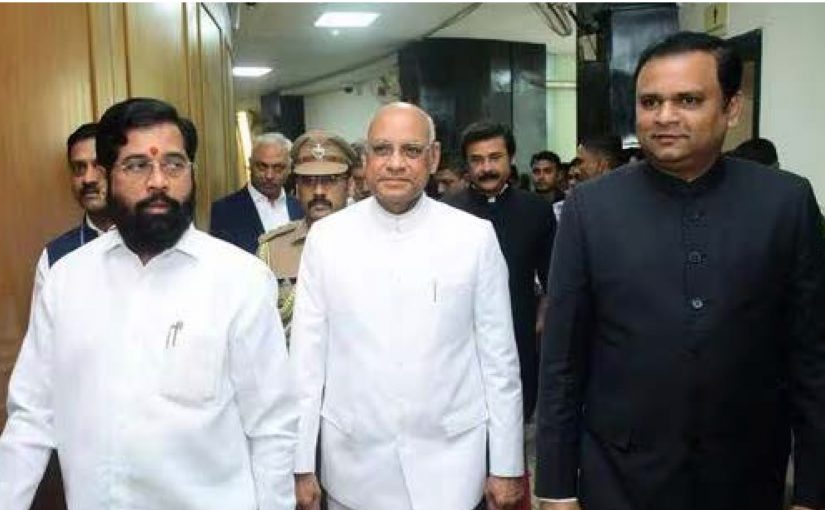EVEN as the p r i n c i p l e s laid down in the 2016 fivejudge bench verdict of the Supreme Court did not impact the outcome of the Maharashtra political crisis case, the Constitution bench on Thursday held that a larger bench must settle the “controversy” and the “substantial questions of law” involved in restraining a speaker from deciding disqualification petitions under the anti-defection law when his own removal has been sought. The bench led by Chief Justice of India (CJI) Dhananjaya Y Chandrachud noted that the June 2022 order of the Supreme Court restraining the then deputy speaker from adjudicating the disqualification petitions against Eknath Shinde and MLAs supporting him was based on the “principles of natural justice” to allow the Shinde faction more time to file replies to the notices. However, the bench, also comprising justices MR Shah, Krishna Murari, Hima Kohli and PS Narasimha, said that in view of the facts of the present case and the arguments made before it as regards the 2016 judgment in the Nebam Rabia (Arunachal Pradesh disqualification) case, the 2016 five-judge bench decision “merits reference to a larger bench because a substantial question of law remains to be settled”. But, according to the bench, the previous Constitution bench judgment failed to consider two crucial aspects. “One, whether the temporary disablement of the functions of the speaker under the Tenth Schedule is prone to misuse by MLAs who anticipate that disqualification petitions will be instituted against them or by MLAs against whom disqualification petitions have already been instituted,” noted the court in its judgment. Two, the bench added, “whether a constitutional hiatus is in the operation of the Tenth Schedule ensues because of the temporary disablement of the speaker.”At the same time, the CJI-led bench underlined that the 2016 judgment did not take into consideration another judgment by a Constitution bench in Kihoto Hollohan Case (1992) which clearly that there is no reason to doubt the independence and impartiality of the Speaker when adjudicating on proceedings under the Tenth Schedule. “In contrast, in Nabam Rebia, this court doubted the ability of the Speaker to remain neutral while deciding disqualification petitions after a notice of intention to move a resolution for the removal of the Speaker has been issued,” the court pointed out. Further, Article 181 of the Constitution provides that the speaker shall not preside over a sitting of the legislative assembly only when a resolution for their removal is under consideration and thus, the bench said, the 2016 judgment did not consider if there could be an additional reason for disabling the Speaker.To give a quietus to the issue, the court said, it is referring the key issue to along with any allied issues which may arise during the future proceedings to a seven-judge bench. “Whether the issuance of a notice of intention to move a resolution for the removal of the Speaker restrains them from adjudicating disqualification petitions under the Tenth Schedule of the Constitution,” underlined the bench while framing the prime issue for an authoritative pronouncement by the larger bench. The issue regarding impeccability of the 2016 judgment landed before the CJI-led bench after a smaller bench in August 2022 doubted its correctness. “We may prima facie observe that the proposition of law laid down by the constitution bench in Nebam Rebia, stands on contradictory reasoning, which requires gap filling to uphold the constitutional morality. As such, this question needs a reference to a constitution bench for the requisite gap filling exercise to be conducted,” the August order by then CJI N V Ramana and justices Krishna Murari and Hima Kohli. Since the CJI-led bench was also a bench of coordinate strength, judicial decorum required the legal controversy arising out of the 2016 judgment to be referred to bench of more than five judges.
POLL PANEL TO DECIDE ‘REAL’ SENA
